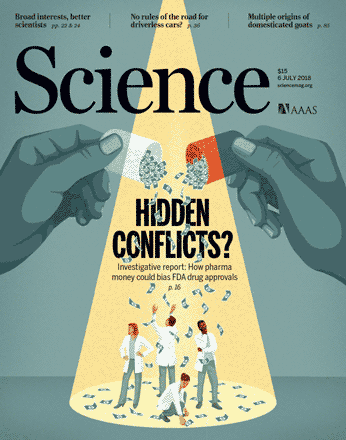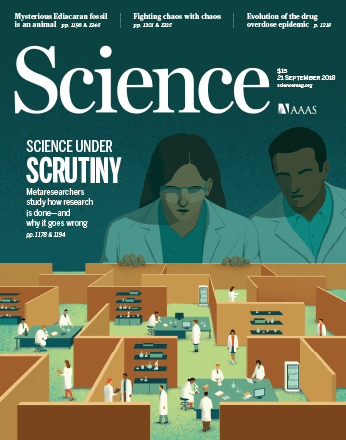Medical School in 1980-1984 let me down on several fronts. For instance, (1) we were not taught to think integratively; (2) we only received one hour of nutrition, and none on environmental issues; (3) the mind-body connection was deemed to be “soft medicine” not worth bothering with, (4) and non-allopathic fields like homeopathy chiropractics, acupuncture, massage and hypnotherapy were felt to be quackery. Thankfully, medical education is better now, but there is still room for improvement. However, optimal healing of medical education will not take place until we correct the monetary incentives that bedevil medical research.


“IS ACADEMIC MEDICINE FOR SALE?”[1] No. The present owners are happy with it. Hugo Rodier, MD
History of sexual abuse may impact health of middle-aged women
USA Today (10/3, Painter) reports, “A history of sexual assault or workplace sexual harassment can have a major effect on the mental and physical health of a middle-aged woman,” researchers concluded in findings published online Oct. 3 in JAMA Internal Medicine and set for presentation at the North American Menopause Society’s annual meeting. The 304-woman study revealed that “victims of sexual assault suffer high rates of depression, anxiety and sleeplessness; victims of harassment have elevated rates of high blood pressure and sleep loss.”
Reuters (10/3, Carroll) reports that in another study, “70 percent of male and female physicians in Berlin, Germany, said they had experienced sexual harassment or misconduct at work.” Specifically, the 737-physician study found that “62 percent of men and 76 percent of women had experienced some sort of sexual harassment in the workplace.” That study was also published online Oct. 3 in a research letter in JAMA Internal Medicine.
Comment: With few exemptions, I find patients on multiple prescriptions to have a history of sexual abuse as children, something that happens to 1/3 of women. If this is the case, it is imperative that counselling, and treatment of the HPA axis be undertaken. The latter entails restoring adrenal function.
Caffeine may increase pain tolerance
The New York Times (9/27, Bakalar) reports a small study of 62 adults published in Psychopharmacology found that “consuming caffeine regularly may increase the ability to withstand pain.” The researchers had the participants record their caffeine intake and measured their pain tolerance by using devices that increased heat or pressure on their forearms or backs.
Comment: caffeine is like alcohol—it has diminishing returns. So, do not drink more than two cups a day.
Diet is chief reason for racial difference in blood pressure in US
NBC News (10/2) reports the “Southern diet” described as including “fried food, cheesy casseroles, and sweet, sweet tea” is “deadly, especially to African-Americans,” by increasing “blood pressure up to killer levels,” according to a study published in the Journal of the American Medical Association. The study included “7,000 people who had been taking part in a larger, long-term study of diet and lifestyle,” and included recording “weight, blood pressure, cholesterol,” alcohol consumption, “income and about exercise habits,” as well as “symptoms of stress and depression.” The researchers also asked about diet and found “big differences between blacks and whites in terms of eating the least-healthy foods.” African-Americans were also found to be “less likely to eat healthy foods that lower the risk of heart disease, including vegetables, fruits and whole grains.” They found no racial difference in BMI among men, though “black women were more likely to be obese than white women.”
U.S. News & World Report (10/2, Lardieri) states, “African-Americans who die younger mostly die from heart disease caused by high blood pressure” and the reason found was “a Southern diet, one filled with high amounts of salt, sugar and fat.” Overall, the study found that “the Southern-style diet accounted for 51.6 percent of excess risk for high blood pressure in black men and 29.2 percent in black women.”
Comment: most issues are due to different nutrition and geography. Google EPIGENETICS.
Intermittent fasting linked to longevity
USA Today (9/6, Brown) reports a new study by the National Institute on Aging “suggests that intermittent fasting could be the key to longevity.” Scientists from the NIA, the University of Wisconsin-Madison, and the Pennington Biomedical Research Center “found that increasing time between meals improved the overall health of male mice and lengthened their lives compared to mice that ate more frequently.” The study also found the health benefits were seen “regardless of what the mice ate or how many calories they ate.”
Comment: this is just ancient wisdom rehashed. It pays to let our metabolic engines, the gut flora and cellular mitochondria, have a rest once in a while.
Link between heart health, brain function
The Los Angeles Times (8/21, Kaplan) reports “new research suggests that taking care of your cardiovascular system will pay off for your brain.”
The New York Times (8/21, Bakalar) reports that in a 6,626-participant study, researchers found that “cardiovascular health in older people is associated with lower risk of dementia and lower rates of cognitive decline.” The findings were published in the Aug. 21 issue of JAMA.
TIME (8/21, Park) reports the researchers found that people with good cardiovascular health, as measured by the American Heart Association’s Life’s Simple 7 Metrics, were less likely to have dementia.
MedPage Today (8/21, George) reports that in another study, also published in the Aug. 21 issue of JAMA but involving “125 young adults in England,” researchers found “that better cardiovascular metrics were associated with higher cerebral vessel density and caliber, higher cerebral blood flow, and fewer white matter hyperintensities.”
Comment: more ancient wisdom. Why did we ever think that there are different health factors for each organ? Answer—see above editorial.
Sugar- and Artificially Sweetened Beverages and the Risks of Incident Stroke and Dementia, J. Stroke. 2017;48:1139-1146
After adjustments for age, sex, education (for analysis of dementia), caloric intake, diet quality, physical activity, and smoking, higher recent and higher cumulative intake of artificially sweetened soft drinks were associated with an increased risk of ischemic stroke, all-cause dementia, and Alzheimer’s disease dementia. When comparing daily cumulative intake to 0 per week (reference), the hazard ratios were 2.96 (95% confidence interval, 1.26–6.97) for ischemic stroke and 2.89 (95% confidence interval, 1.18–7.07) for Alzheimer’s disease. Sugar-sweetened beverages were not associated with stroke or dementia.
Comment: why did doctors and nutritionists warning about artificial sweeteners have been getting slammed? Answer—see above, again.
Lead exposure may be associated with resistant hypertension
On its website, NBC News (10/24, Fox) reports that research suggests “there’s one possible reason so many Americans, especially those living in inner cities, have high blood pressure: lead exposure.” The findings were published online in the Journal of the American Heart Association.
Comment: heavy metals have long been associated with ALL health problems, particularly circulatory issues, which also affect the brain. Why has this problem not been highlighted better? You know why.
Low levels of traffic pollution cause structural changes in heart
Reuters (9/14, Rapaport) reported that research suggests “people exposed to even low levels of air pollution are more likely to develop structural changes in the heart that can be a precursor to heart failure.” After looking “at data on exposure to traffic-related air pollution and results from heart MRIs for 3,920 adults who did not have cardiovascular disease,” researchers “found that previous exposure to tiny particles known as PM2.5, which include dust, dirt, soot and smoke, and to nitrogen dioxide, a poisonous gas in car exhaust, were associated with enlargement on both sides of the heart.” The findings were published in Circulation.
Comment: For a more comprehensive understanding, watch my HEALTH CLASS on www.hugorodier.com
Sound impacts public health
The Wall Street Journal (9/16, Roberts, Subscription Publication) reports on the latest research into the health implications of sound. The article says a 2011 World Health Organization study found traffic noises cause high blood pressure, interrupt sleep and increase stress, while another study published in 2015 in the journal Environmental Health found that street level noise above 55 decibels can cause harm. The piece says that innovations in pavement materials and automobiles could bring health benefits.
Comment: People can’t hear the whispers of common sense—it’s too noise out there.
Air pollution is shortening life expectancy
The New York Times (8/22, Sengupta) reports a new study published in Environmental Science & Technology Letters found that “air pollution is shaving months – and in some cases more than a year – off your life expectancy, depending on where you live.” The Times adds, “Worldwide, outdoor air pollution reduces the average life expectancy at birth by one year. The effect is much more pronounced in some countries: It cuts the average Egyptian’s life span by 1.9 years and the average Indian’s by 1.5 years. In Russia, it’s around nine months.”
Comment: It’s comforting to see that this issue is finally on the front page. To think that I was called a “burnt out hippie” when I sounded the alarm in the early 90’s…
Exposure to air pollution may increase risk of dementia by 40%
Newsweek (9/18, Gander) reports researchers found that exposure to air pollution may increase “the risk of developing dementia by up to 40 percent.” The findings were published online in BMJ Open. The article points out that other studies have tied air pollution to dementia.
MedPage Today (9/18, George) reports investigators “looked at 130,978 adults, ages 50 to 79, who were registered in 2005 with 75 primary care practices located within the London orbital M25 motorway.” The researchers found that “older people living in areas with higher air pollution were more likely to be diagnosed with dementia in subsequent years.”
Comment: doesn’t air pollution drive you crazy?
Glaucoma may be an autoimmune disease
STAT Plus (8/13, Farber, Subscription Publication) reports that a study published in Nature Communications found that “T cells, key soldiers in the immune system’s defense against microbes, play a role in the prolonged retinal degeneration seen in glaucoma.” The findings suggest that “glaucoma might be an autoimmune disease.”
Comment: most diseases are, in that nutrition affects our immune system, the gut flora in the gut. Prevent glaucoma by eating more veggies, particularly leafy greens and carrots.
Screen time may be linked to depression or anxiety in young
TIME (10/29, Heid) reports, “Young people who spend seven hours or more a day on screens are more than twice as likely to be diagnosed with depression or anxiety than those who use screens for an hour a day,” researchers concluded after examining data “from more than 40,000 kids ages two to 17” that “was collected as part of the Census Bureau’s 2016 National Survey of Children’s Health.” The findings were published online in Preventive Medicine Reports.
Comment: I tried to show this to my teen daughter, but she was too busy on her cell phone.
Omega-3 supplements may benefit people with anxiety disorders,
The New York Times (10/11, Bakalar) reports on a study published in JAMA Network Open finding that “people with clinically diagnosed anxiety disorders who took large doses of” Omega-3 supplements “up to 2,000 milligrams a day – benefited most.” The study included “data from 16 studies that compared omega-3 fatty acid supplements with placebo and three that did not use a placebo.” The review found that “omega-3 supplements were associated with significant relief from anxiety symptoms,” though they “did not ease anxiety levels in those without a clinical diagnosis of an anxiety disorder, or in adolescents under 18.”
Comment: the brain is 80% fat. Of course, some people’s brains are 100% fat.
- NEJM May 18TH, 2000;342:1516 ↑


